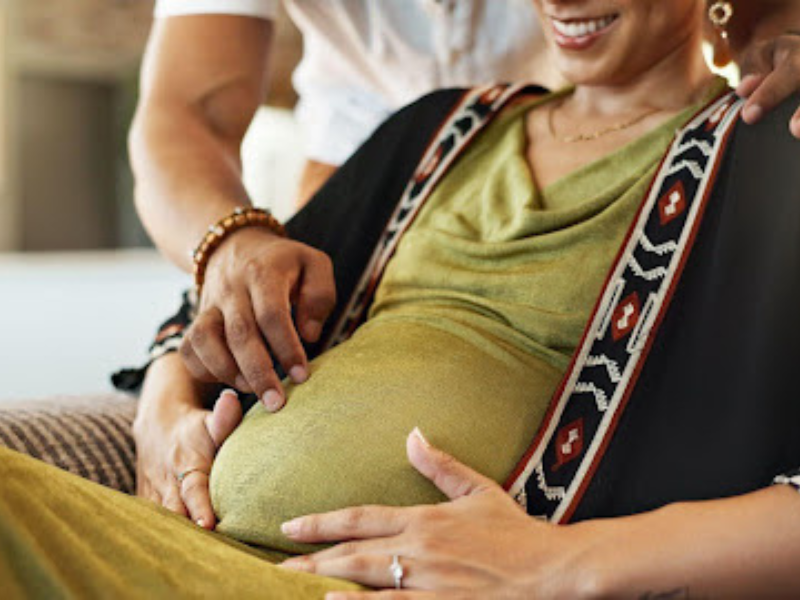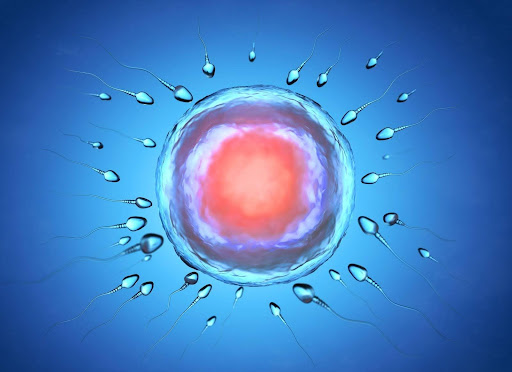
What Should You Know About Menopause and Pregnancy?
From the first signs of puberty to motherhood and beyond, women’s journey is filled with pivotal milestones. Among such phases, menopause also stands as a natural biological process that signals the end of reproductive years due to the end of the menstruation cycle. From this perspective, menopause and pregnancy seem contradictory, however, they are often shrouded between myth and mystery.
With the scientific advancements, new options have emerged that blur the line between fertility and menopause.Through this blog, let’s try to find out the answers of the questions like can pregnancy still occur in the years leading up to or during menopause? What are the health implications? We will also go through the multifaceted relationship between menopause and pregnancy.
Menopause is typically defined as the time in a woman’s life when the menstrual cycle permanently ceases, marking the end of reproductive years and so with the capability. It usually occurs between the ages of 45 and 55, though it may vary from woman to woman depending on environment, health factors, race or genetics.
It is worth mentioning here that before menopause sets in, women enter a transitional phase called perimenopause, which is indeed more drastic and severe than the menopause. During perimenopause, hormonal fluctuations particularly in estrogen cause irregularity in menstrual cycles, sudden surge of heat called hot flushes, mood swings and other physical and emotional changes. Since, this is a transitional phase and slumping of hormones is in progress yet, possibilities of pregnancy remain viable with declined fertility.
Let’s Delve into the Possibility of Getting Pregnant during Perimenopause
While menopause signals the end of fertility, perimenopause remains in the gray zone. The phase is characterized by an unpredictable and sporadic ovulation but does not disappear entirely until menopause is declared. Therefore, the possibility of pregnancy still exists, albeit with reduced odds.
Women in their late 40s or early 50s who do not have attained menopause yet may assume themselves to be no longer fertile and thereby, forgo contraception. This misconception can lead to unexpected or unwanted pregnancies although it is rare but real. Medical practitioners in the fertility centers advise that partners should use contraception for at least 12 months after a woman’s last period to avoid unintended pregnancies.
How is Pregnancy Possible after Menopause? A Deep Dive into it
When we talk about pregnancy after menopause, it’s important to clarify that natural conception is no longer an option once a woman reaches menopause. By this stage, neither the ovaries produce eggs, nor the hormonal environment is sufficing for a natural pregnancy. However, thanks to advances in reproductive healthcare and medicine, pregnancy after menopause is not just a theoretical possibility, it’s a reality for some women.
There are a range of medical procedures used to address infertility and assist individuals or couples in achieving pregnancy, called Assisted Reproductive Technology (ART). It encompasses any treatment where eggs and sperm are handled outside the human body. Let’s understand the ART, its type and complexities associated with it.
1. In-Vitro Fertilization (IVF)
A most common and widely known form of ART which involves retrieving eggs from the woman’s ovaries, fertilizing them with sperms in laboratory conditions and again implanting the resulting embryo back into the woman’s uterus. IVF is done using a woman’s own eggs and her partner’s sperm or donor’s eggs and sperms.

2. Intracytoplasmic Sperm Injection (ICSI)
It is a specific and specialized form of IVF where a single sperm is directly injected into an egg to assist with fertilization. It is primarily used to treat the male infertility and the method bypasses many of the natural barriers to conception, particularly when sperm quality or count is low. It involves retrieval of the eggs from a woman’s ovaries, selection of single healthy sperm from her partner or donor, injection of selected sperm directly into the egg using a fine needle. The developing embryo is monitored in the lab conditions and finally, implanted into the woman’s uterus.
3. Frozen Embryo Transfer (FET)
In this process, previously frozen embryos from prior IVF cycle are thawed and transferred into the uterus. It is considered advantageous over IVF (where fresh embryos are implanted) and is a valuable option for ensuring higher success rates, flexibility, and safety in fertility treatments.
4. Gestational Surrogacy
In this method of ART, a woman (the surrogate mother) carries a pregnancy for someone else. The embryo is created using IVF using sperms and eggs of intended partners or donors or a combination. The point to be considered here is that the surrogate has no genetic relationship to the child.
5. Gamete Intrafallopian Transfer (GIFT)
Here, both the eggs and sperms are directly transferred into the fallopian tube and fertilization occurs naturally inside the body.
6. Zygote Intrafallopian Transfer (ZIFT)
In ZIFT, the eggs are fertilized with sperm in the lab and once fertilization occurs and zygote is formed, it is transferred into the fallopian tube. Here, unlike GIFT, fertilization occurs outside the body.
While all these options are available for conceiving after menopause, be it an induced or natural, women, who wish to use their own eggs, the procedure of egg retrieval would need to be done before menopause, as the number and quality of eggs decreases as she ages. The methods mentioned above are possible though, it is not at all easy and has a lot of challenges including the cost, physical strain, emotional toll, emotional dilemma and potential health risks. Therefore, it should be carefully weighed before proceeding.
Some women choose to freeze their eggs earlier in their lives, which can later be fertilized and implanted via IVF when they are ready to conceive. This option allows women to delay pregnancy while still using their own genetic material.
Menopause after Pregnancy, Can it be Delayed?
While a later-life pregnancy can temporarily elevate hormone levels, it does not significantly delay menopause. Although this may provide a brief respite from perimenopausal symptoms, the onset of menopause is ultimately determined by biological factors and is not significantly influenced by pregnancy timing.
Menopause Pregnancy Symptoms: What to Watch for?
Attaining pregnancy at later-life often brings confusion due to resembling menopause- pregnancy symptoms. Both initiation of pregnancy and menopause involve missed periods, mood swings, weight gain and fatigue. Because of these overlapping symptoms, it is not uncommon for women to mistakenly attribute signs of pregnancy to menopause, especially when a woman has considered that she can no longer conceive.
And What if a Woman is Trying to get Pregnant after Menopause?
Women who undergo IVF after menopause or those who are still at their perimenopause, should pay attention to pregnancy symptoms such as breast tenderness, nausea, increased urination. These symptoms are more specific to pregnancy than menopause. If a woman is actively trying to conceive through ART, regular monitoring by healthcare providers is essential to ensure that the symptoms are pregnancy specific and to the menopause.
Is there Any Difference between Pregnancy before and after Menopause?
With the help of scientific advancement and medical intervention, women who have conceived after menopause would still experience hormonal fluctuation, as their bodies adjust to support the pregnancy when it is already proceeding towards the menopausal changes. This may add an additional layer of complexity; as post-menopausal women already are dealing with hormonal fluctuations. These factors can make pregnancy after menopause a more physically and emotionally demanding experience compared to pregnancies in earlier life.
Biological Standpoint of Pregnancy during/ after Menopause: A Risk benefit Ratio
- Pregnancy during / after menopause can be challenging due to declined quantity of hormones and quality of eggs.
- Older women are at a higher risk of complications like miscarriages, gestational diabetes, high blood pressure leading to preeclampsia and preterm birth.
- Along with this, a fear of chromosomal aberrations in the fetus, such as Down syndrome always pertains.
- These health conditions can pose serious health risks for both the mother and the baby and may require immediate medical intervention to manage.
Do the Menopausal Pregnant Women require Emotional and Ethical Support?
- The mental, emotional and ethical considerations must be taken into account because they are as important as physical and medical aspects of pregnancy after menopause.
- For some women, the ability to conceive after menopause offers a second chance at motherhood. It may be particularly appealing for women who have experienced infertility or who have found themselves ready for motherhood later in life.
- On the flip side, the decision can also raise ethical questions, especially concerning the welfare of the child.
- Becoming a mother at later-life is full of challenges related to their health, energy levels and longevity. Moreover, post-menopausal women may also face societal pressures about being an older parent, which can lead to emotional challenges.
- Considering these aspects, pregnancy after menopause seek counseling and guidance to help navigate the emotional and ethical issues of their decision.
- It is imperative to have a strong support system and to work closely with healthcare providers to ensure that both the mother and the baby are well cared for throughout the pregnancy.
Core Takeaway
Pregnancy after menopause is indeed a complex condition a woman can think of. While it may have once seemed impossible naturally, modern science and technology with medical intervention have made it possible for women to conceive even after they have ended reproductive years. Although it seems quite easy however, conceiving at menopause comes with its own set of challenges and risks that must be carefully considered. Nevertheless, with the right guidance and timely support, pregnancy after menopause is possible, offering women new opportunities for motherhood when they might have thought those doors were closed forever.
Citations
- https://ogaidaho.com/pregnancy-after-menopause/#:~:text=When%20you%20reach%20postmenopause%2C%20your,in%20vitro%20fertilization%20(IVF)
- https://www.health.com/condition/menopause/can-you-get-pregnant-after-menopause
- https://www.healthline.com/health/menopause/menopause-pregnancy
- https://www.todaysparent.com/family/womens-health/can-a-woman-get-pregnant-after-menopause/
- https://www.ncbi.nlm.nih.gov/pmc/articles/PMC4915282/

Poonam Rawat





